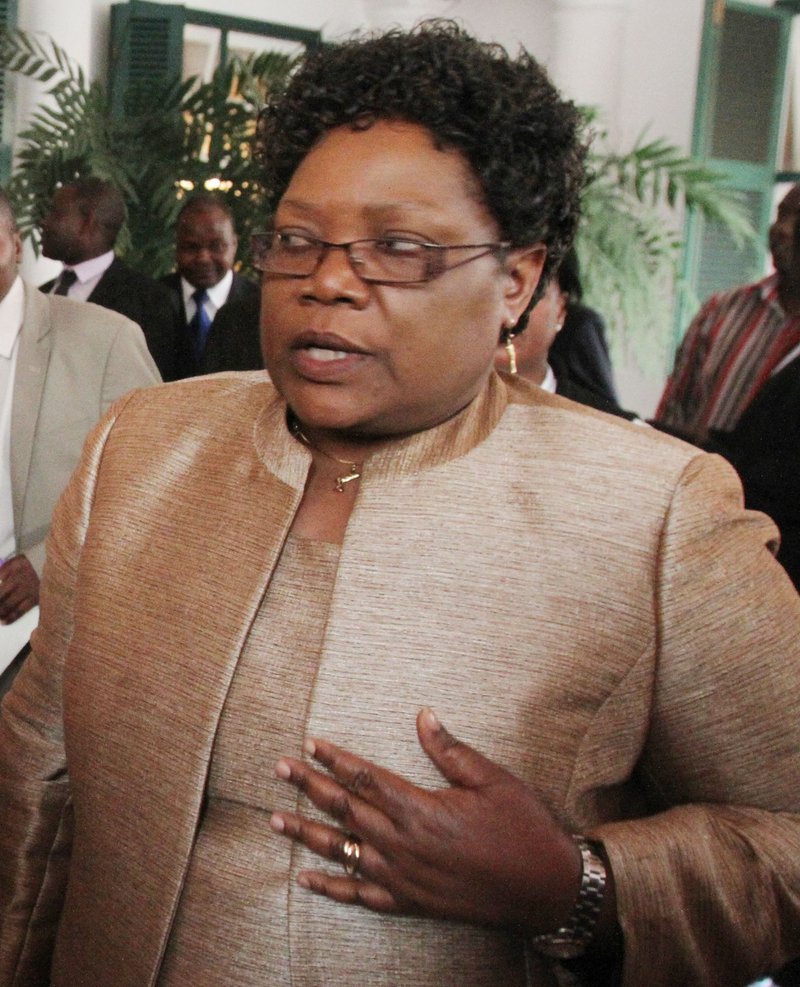Former Mugabe deputy Mujuru bares her political cards
Updated | By ANA
Zimbabwe’s former Vice-President Joice Mujuru has bared her political cards and came out in the open about her future, an indication she will challenge her former boss, President Robert Mugabe – or his annointed successor – in the next watershed elections in three years’ time.

Mujuru had kept the nation guessing about her future following her ouster from both Zanu PF party and government last December at the sixth Zanu PF congress.
She was sacked after a spirited attack by First Lady Grace Mugabe during her Meet the People Tour rallies who alleged Mujuru was planning to assassinate Mugabe.
Since being ousted, she has chosen to keep her profile low and only made a few public appearances with veiled pronouncements.
Mujuru, who has been linked to the People First party, however, unveiled her party manifesto on Tuesday which points to business acumen.
“Since my last statement issued in early June 2015, we have been hard at work and I wish to share with you, in brief, how we propose to translate our vision for a better Zimbabwe into reality – through the proposed Blueprint to Unlock Investment and Leverage for Development [BUILD],” she said in her introduction.
In the manifesto, she touched on a number of issues, from acknowledging dual citizenship, promoting and supporting a free press, repealing the controversial Access to Information and Protection of Privacy Act and to reviewing the licensing criteria and methodology under the Broadcasting Services Act.
She also said People First would give the vote to Diasporans, repeal the Public Order and Security Act, realign the Criminal Code Codification and Reform Act, ensure the Electoral Act would fully comply with the Constitution’s provisions and requirements as well as respecting property rights through addressing historical compulsory acquisition by way of compensation.
Mujuru vowed to protect and promote legislation that supported conservancies and tourism.
Multilateral and bilateral creditors, she said, would be engaged to commit a full debt resolution strategy.
Zimbabwe owes several institutions, including the World Bank and International Monetary Fund (IMF), a lot of money, and has since engaged with the Bretton Woods Institute on repaying a US$1,8 billion loan it owes them.
The indigenisation law as well would be revamped with a view to emphasise economic empowerment that attracts foreign direct investment and promotes the broad-based socio-economic and infrastructure development objectives.
People First also said it would make all political leaders accountable to the citizenry and to abide by state laws.
Show's Stories
-
Fans discover singer Sabrina Carpenter has a super famous aunt
The 'Feather' singer is related to one of the most well-known voices ever.
The Drive with Rob & Roz 5 hours ago -
WATCH: Grammy winner Tyla spotted shooting video in Johannesburg
"They ain’t never had a pretty girl from Joburg."
The Drive with Rob & Roz 5 hours ago